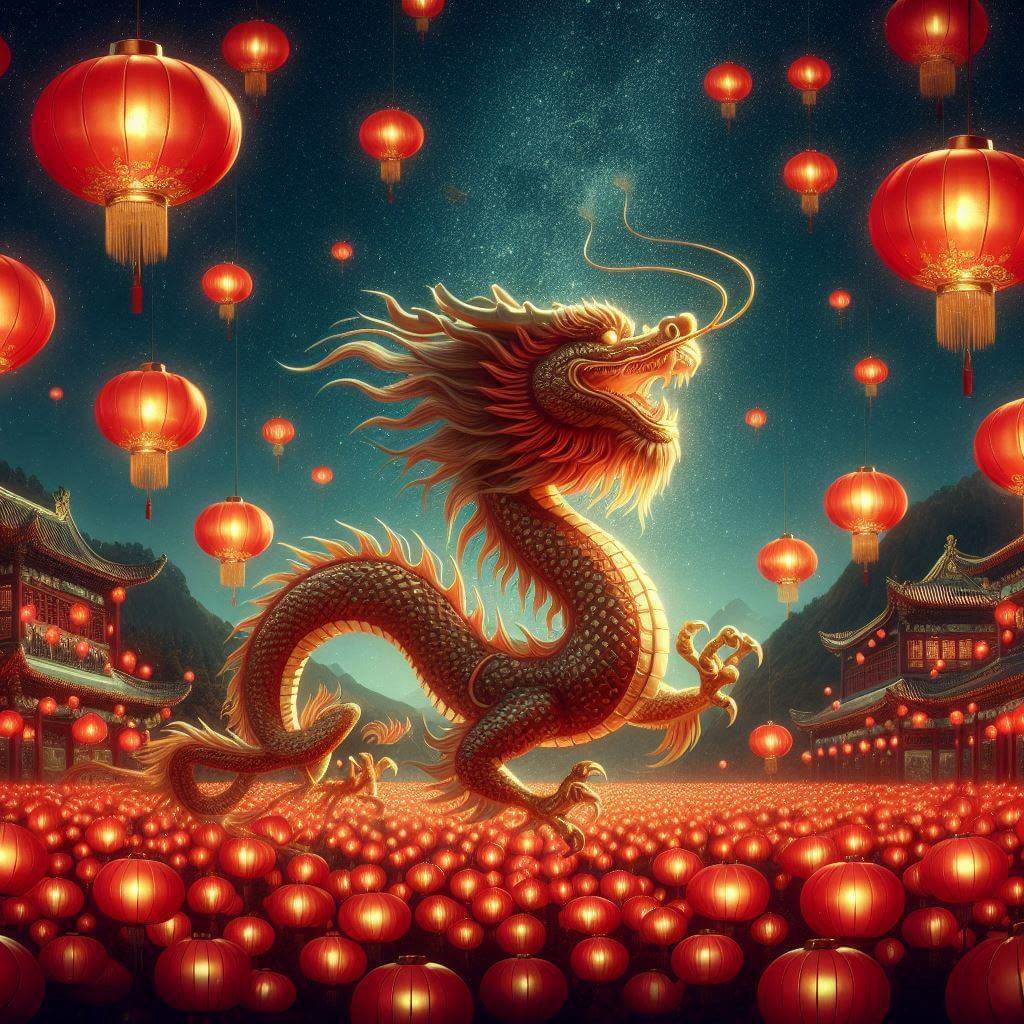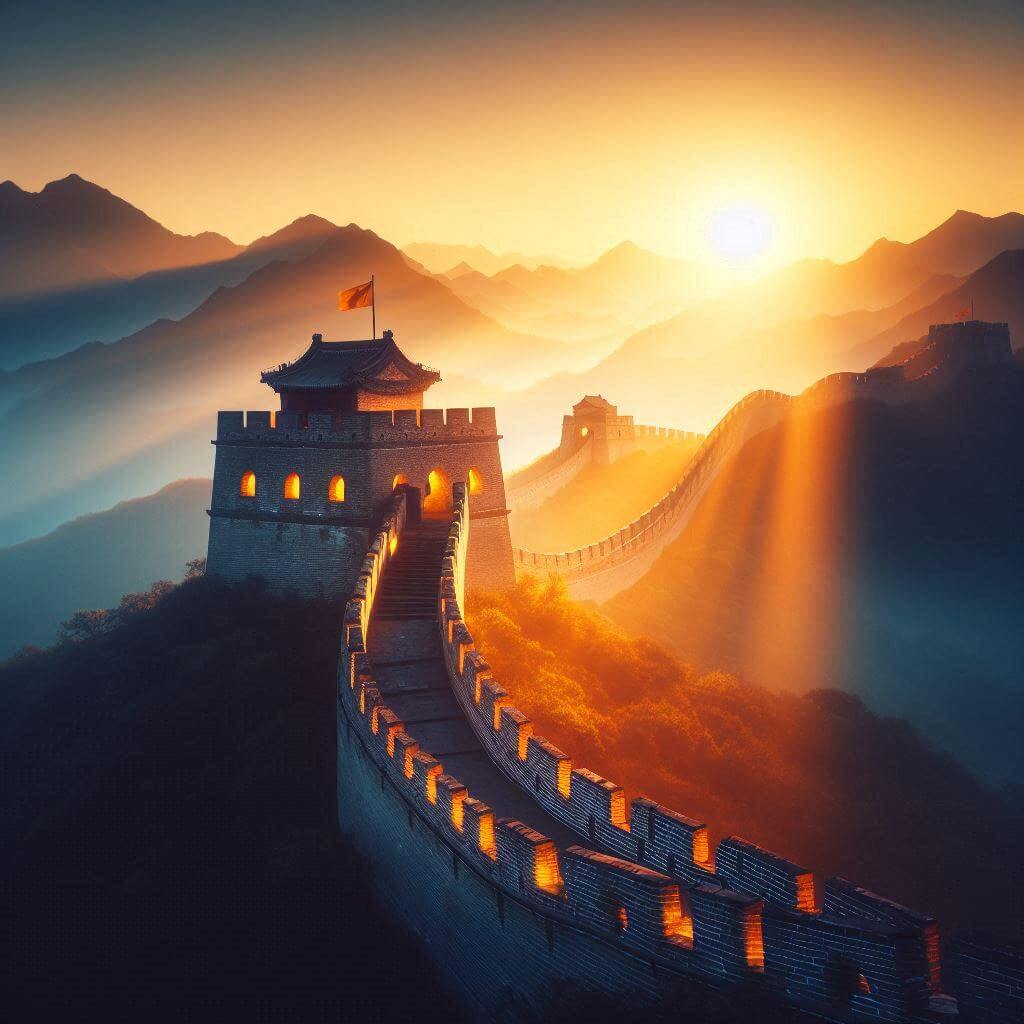The flag of China, officially known as the Five-star Red Flag (五星红旗, Wǔxīng Hóngqí), consists of a red field with five golden stars in the top-left corner. The largest star is positioned on the left, with four smaller stars in a semicircle to its right. This iconic design has represented the People's Republic of China since its founding in 1949.
China information
| National Flag Day | October 1 |
| Sovereign state | Yes |
| Official name | People's Republic of China |
| Capital | Beijing |
| Population | 1,443,343,000 |
| Area | 9,712,963 km² |
| Currency | Renminbi (RMB) (CNY) |
| Language | Standard Chinese |
| Continent | Asia |
| Region | East Asia |
| Subregion | — |
| Borders | Afghanistan, Bhutan, India, Kazakhstan, North Korea, Kyrgyzstan, Laos, Mongolia, Myanmar, Nepal, Pakistan, Russia, Tajikistan, Vietnam |
| Timezone | China Standard Time (CST) UTC+8 |
| Calling code | +86 |
| Top-level domain | .cn |
History of the Chinese Flag
 The current flag of China was officially adopted on October 1, 1949, coinciding with the formal establishment of the People's Republic of China under the leadership of Mao Zedong. The design was created by Zeng Liansong, an economist from Wenzhou, whose submission was chosen from over 3,000 entries in a national flag design competition.
The current flag of China was officially adopted on October 1, 1949, coinciding with the formal establishment of the People's Republic of China under the leadership of Mao Zedong. The design was created by Zeng Liansong, an economist from Wenzhou, whose submission was chosen from over 3,000 entries in a national flag design competition.
Prior to this, China had used various flags throughout its long history, including the "Five-Colored Flag" of the Republic of China (1912-1949) and the "Blue Sky with a White Sun" flag of the Kuomintang party.
Symbolism and Design of the Chinese Flag
The flag of China is rich in symbolism, with each element carefully chosen to represent aspects of the nation's revolutionary history and socialist ideals:
- Red Field: Symbolizes the communist revolution and the sacrifices made by the Chinese people for national independence and liberation. Red is also traditionally associated with good fortune and happiness in Chinese culture.
- Large Star: Represents the Communist Party of China (CPC) and its leadership role in guiding the nation.
- Four Smaller Stars: Symbolize the four social classes united under the leadership of the CPC, as defined by Mao Zedong: the working class, the peasantry, the urban petite bourgeoisie, and the national bourgeoisie.
- Arrangement of Stars: The semicircular arrangement of the smaller stars around the large star represents the unity of the Chinese people under the leadership of the CPC.
The flag's dimensions and the positioning of the stars are precisely defined in China's National Flag Law to ensure consistency in its reproduction.
Usage and Significance of the Chinese Flag
 The Chinese flag holds profound significance as a national symbol, embodying China's revolutionary heritage, socialist principles, and aspirations for unity and prosperity. It is prominently displayed during:
The Chinese flag holds profound significance as a national symbol, embodying China's revolutionary heritage, socialist principles, and aspirations for unity and prosperity. It is prominently displayed during:
- National Day celebrations (October 1)
- Official state ceremonies and visits
- International events and sports competitions
- Daily flag-raising ceremonies in schools and public institutions
The flag is a powerful emblem of Chinese identity and pride, both within China and among overseas Chinese communities. Its use is regulated by the National Flag Law of the People's Republic of China, which outlines proper display and treatment of the flag.
Interesting Facts About the Chinese Flag
- The designer of the flag, Zeng Liansong, was inspired by the stars he saw in the night sky above Beihai Park in Beijing.
- The exact shade of red used in the flag is specified as "Chinese Red" (中国红, Zhōngguó hóng), a deep, rich red that has become synonymous with China.
- The flag's design has remained unchanged since its adoption in 1949, making it one of the longest-serving national flags in continuous use.
- In Chinese space missions, a special version of the flag with extra protective coating is used to withstand the harsh conditions of space.
- The world's largest regularly displayed Chinese flag is flown in Tiananmen Square, Beijing, measuring 288 square meters (3,100 sq ft).





